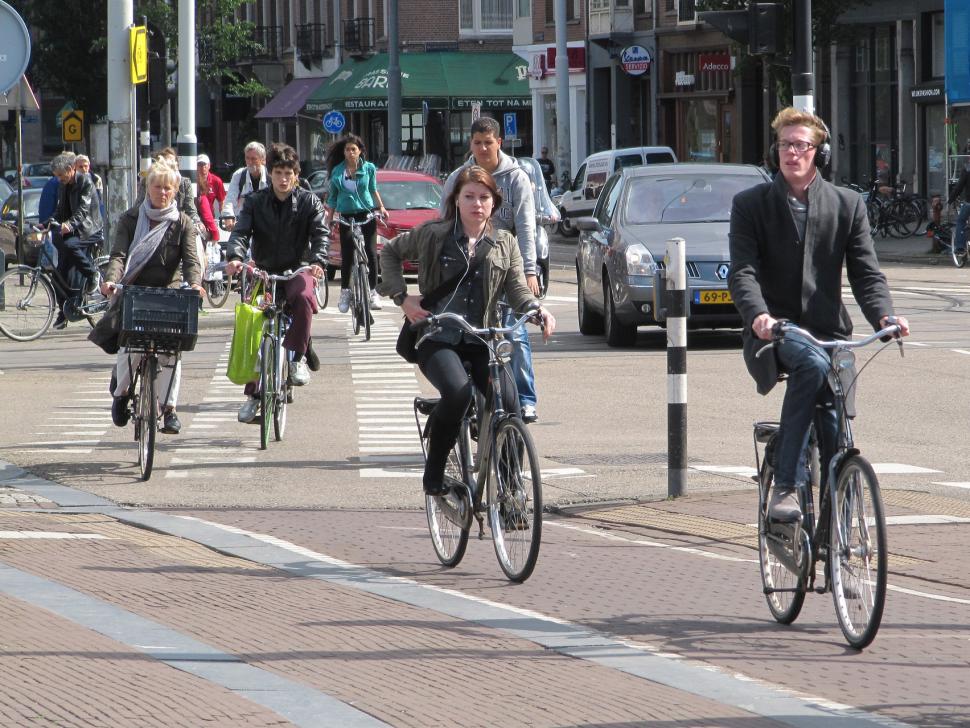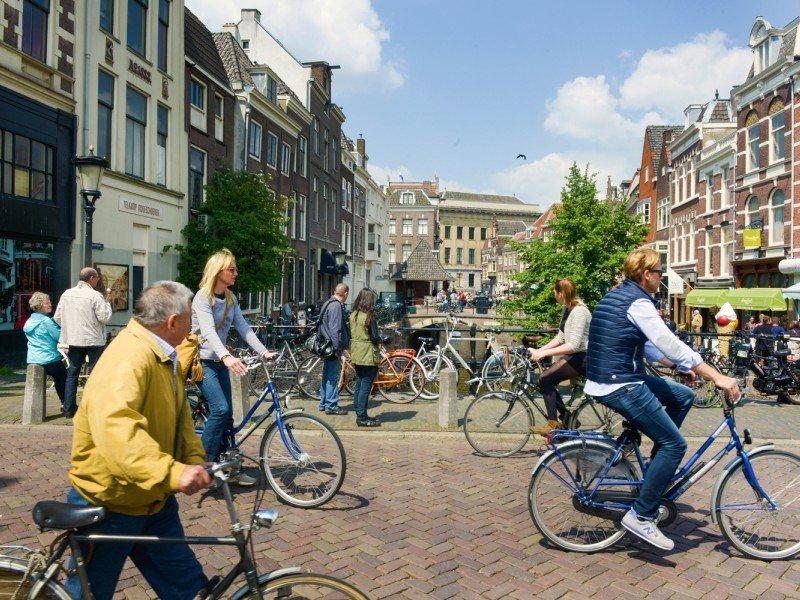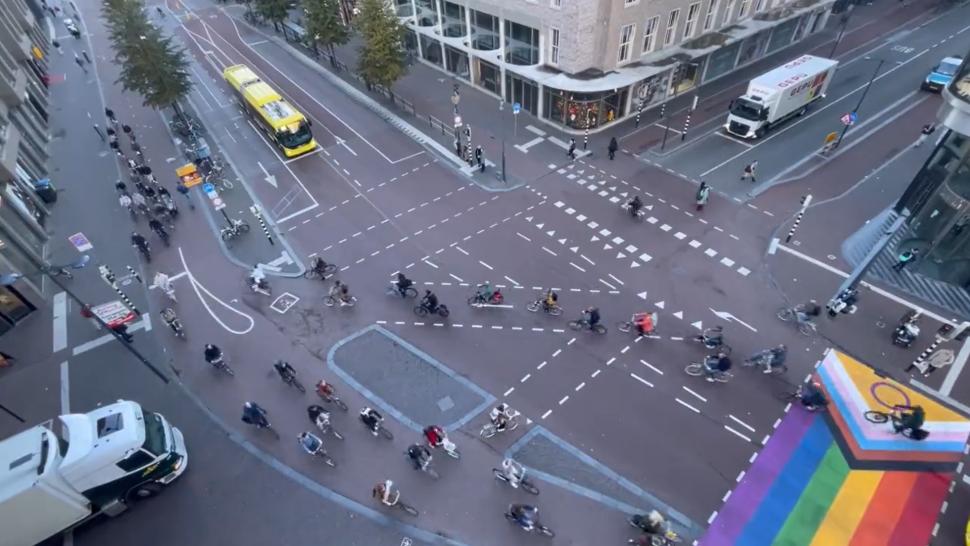- News
- Reviews
- Bikes
- Accessories
- Accessories - misc
- Computer mounts
- Bags
- Bar ends
- Bike bags & cases
- Bottle cages
- Bottles
- Cameras
- Car racks
- Child seats
- Computers
- Glasses
- GPS units
- Helmets
- Lights - front
- Lights - rear
- Lights - sets
- Locks
- Mirrors
- Mudguards
- Racks
- Pumps & CO2 inflators
- Puncture kits
- Reflectives
- Smart watches
- Stands and racks
- Trailers
- Clothing
- Components
- Bar tape & grips
- Bottom brackets
- Brake & gear cables
- Brake & STI levers
- Brake pads & spares
- Brakes
- Cassettes & freewheels
- Chains
- Chainsets & chainrings
- Derailleurs - front
- Derailleurs - rear
- Forks
- Gear levers & shifters
- Groupsets
- Handlebars & extensions
- Headsets
- Hubs
- Inner tubes
- Pedals
- Quick releases & skewers
- Saddles
- Seatposts
- Stems
- Wheels
- Tyres
- Health, fitness and nutrition
- Tools and workshop
- Miscellaneous
- Tubeless valves
- Buyers Guides
- Features
- Forum
- Recommends
- Podcast
news
 Better facilities, like these in the Netherlands, woiuld encourage people to cycle more (CC BY-NC-SA 2.0 licenced by MarkA:Flickr)
Better facilities, like these in the Netherlands, woiuld encourage people to cycle more (CC BY-NC-SA 2.0 licenced by MarkA:Flickr)Dutch government and neurologists call on cyclists to wear helmets – but cyclists’ union says “too much emphasis” on helmets discourages cycling and “has an air of victim blaming”
The Dutch Cyclists’ Union has admitted that it may be a “wise decision” to wear a bike helmet on a voluntary basis, but urged against placing too much emphasis on helmet use – which the group argued can actually discourage cycling and instil a victim blaming culture in the famously cycling-friendly nation – after local authorities, the government, and neurologists urged people in the Netherlands to don a helmet when travelling around by bike.
Next month, the Netherlands’ transport ministry will introduce new guidelines on voluntary helmet use, after provinces such as Utrecht ran a campaign in May offering a €25 discount on helmet purchases.
Gelderland, meanwhile, is currently in the midst of its own campaign which attempts to raise awareness of helmet use and promote “behaviour change” in elderly cyclists, with people over 60 accounting for almost half of all seriously injured cyclists in the Netherlands.
> Dutch surgeons call on people to wear helmets while cycling
In a country with a distinct, deeply embedded cycling culture and where 28 per cent of all journeys are made by bike, only 3.5 per cent of Dutch cyclists wear helmets, which are usually confined to the nation’s sport or leisure cyclists.
However, calls for the Netherlands’ fietsers, its everyday cyclists, to wear helmets while out and about have been increasing in volume in recent years, as the number of cyclists seriously injured each year has risen by 27 per cent over the past decade, according to injury prevention organisation Veiligheid NL.
The Dutch Institute for Road Safety Research has also claimed that if all Dutch cyclists wore helmets, fatalities on the road would drop by 85 each year, and the number of serious injuries reduced by 2,500.
In 2022, 88,000 cyclists were injured in the Netherlands, making up 66 per cent of all casualties on the road. Around half of those collisions involved a motorist.
> Cyclists wearing helmets seen as "less human" than those without, researchers find
In light of these figures, two of the Netherlands’ leading road safety researchers, Fred Wegman and Paul Schepers, questioned whether the country could truly be said to support Vision Zero and similar initiatives without addressing the problem of head injuries suffered by cyclists not wearing helmets – even calling on the Netherlands to potentially follow Australia’s lead by introducing an obligatory helmet law.
“Modifications to cars can reduce injury in a collision, but in single-bicycle crashes, a helmet is one of the few possible measures to prevent serious head injuries,” Wegman and Schepers said.
“In case of a fall or crash, the use of a bicycle helmet was found to reduce serious head/brain injury by 60 per cent and fatal head/brain injury by 71 per cent on average, while it is found that the protective effect is the same for children and adults.
“In summary, wearing a helmet while cycling reduces the risk of head and brain injuries, and this reduction is higher for more severe injuries. A helmet obligation could be more effective than encouraging voluntary wearing.
“Perhaps the latter may be needed to increase support in the Dutch society for an obligation. Helmet use by cyclists seems to be a very relevant contribution towards zero cycle casualties in the Netherlands.”
> Why is Dan Walker’s claim that a bike helmet saved his life so controversial?
Meanwhile, a number of medical experts have also called for more frequent use of helmets, with Evert Pronk, the deputy editor of the Medical Contact journal, declaring his support for the campaign by admonishing those who purportedly refuse to wear helmets “because they don’t look good” in an article that featured the headline: “Looks good on you, a skull fracture”.
“I’m a huge fan of cycling but it’s important to protect ourselves,” neurologist Myrthe Boss, whose mother died after being hit by a motorist on a roundabout while cycling in 2019, told the Guardian this week.
“The brain is a very vulnerable organ with limited capacity to recover. If you fall from a bike and sustain a brain injury, this has long-term consequences. And a large proportion of people who fall while cycling have brain injury.
“A helmet doesn’t prevent everything but it does ensure there is less impact from the street on your head,” Boss said. “You see what it does in your family when you lose someone that way.”
Responding to the increasing calls for helmet use, the Dutch Cyclists’ Union, Fietsersbond, admitted that helmet use has its benefits – but warned against placing too much emphasis on one aspect of bike safety.
“We have the position that helmets don’t prevent accidents but it can be a wise decision to wear one on a voluntary basis,” the union’s director, Esther van Garderen, said.
“Emphasising too much that you should wear a helmet would discourage people from cycling sometimes, though, and has the air of victim blaming.
“I think it’s coming slowly, although there’s no such thing as a society with zero danger and we value our culture where you can cycle safe and free.”
Back in the UK, meanwhile, the bike helmet debate once again made national headlines, after celebrity chef Gordon Ramsay said his helmet meant he was “lucky to be standing here” after crashing heavily while cycling in Connecticut.
“Honestly, you’ve got to wear a helmet,” Ramsay said in an Instagram video in which he showed off the severe bruising to his side caused by the crash.
“I don’t care how short the journey is, I don’t care the fact that these helmets cost money, but they’re crucial. Even with the kids, [on] a short journey, they’ve got to wear a helmet.
“Now I’m lucky to be standing here. I’m in pain, it’s been a brutal week. I’m sort of getting through but I cannot tell you the importance of wearing a helmet. Please, please, please, please wear a helmet – because if I didn’t, I wouldn’t be here now.”
After obtaining a PhD, lecturing, and hosting a history podcast at Queen’s University Belfast, Ryan joined road.cc in December 2021 and since then has kept the site’s readers and listeners informed and enthralled (well at least occasionally) on news, the live blog, and the road.cc Podcast. After boarding a wrong bus at the world championships and ruining a good pair of jeans at the cyclocross, he now serves as road.cc’s senior news writer. Before his foray into cycling journalism, he wallowed in the equally pitiless world of academia, where he wrote a book about Victorian politics and droned on about cycling and bikes to classes of bored students (while taking every chance he could get to talk about cycling in print or on the radio). He can be found riding his bike very slowly around the narrow, scenic country lanes of Co. Down.
Latest Comments
- stonojnr 15 sec ago
Can't find the link, but I thought it was reported recently that nearly half of all the fines issued by courts go unpaid and only a fraction are...
- Rendel Harris 2 min 55 sec ago
I use Sealskinz, which are about the most expensive option but I did try a number of cheaper ones before settling on them and always ended up...
- Secret_squirrel 5 min 37 sec ago
They arent competing if Strava doesnt have that functionality....
- Bill H 8 min 50 sec ago
It's not just sportsmen and women who get ripped off by their accounts and advisors. Kevin Bacon lost his money to Bernie Madoff's Ponzi scheme,...
- mattw 20 min 29 sec ago
Sorry, but WTF on some of that?...
- the little onion 3 hours 1 min ago
Rather artistic photo of this (driverless) car that has ended up on its roof on a dead straight road in Bradford....
- slc 4 hours 41 min ago
No doubt it will catch on in Plymouth, but it is Devon, where everything happens 10 years later. Not least the buses....
- mctrials23 5 hours 22 min ago
GCN just did a cool video on this. All I could think by the end was that perhaps if you got to do what the presenter did and mince around Italy in...
- ravenbait 5 hours 31 min ago
I missed that, thanks for pointing it out. I can't comment, as that's outside my area of expertise. Apologies to Rendel. This is why they should be...



Add new comment
192 comments
The type of riding without a helmet may differ to that with a helmet so such claims are difficult to substantiate.
Yesterday: Dutch helmet policy<----------------->Australian helmet policy.
Today: Dutch helmet policy<------------->Australian helmet policy.
I'll repost something I have already said on here, but it bears repeating in my view.
Helmet advocates/zealots are never about the actual security of cyclists. They’re about any or all of the following:
- deluding themselves that, wearing a helmet, they or people they care about are actually safe
- gaslighting others, even and especially loved ones, into feeling safe because of a helmet
- deflecting responsibility and culpability for the dangers they as motorists pose to others
- othering cyclists to assert their domination on the roads as drivers
- painting cycling as a dangerous activity to be able to blame the victims
- avoiding efforts to change their own transport choices and behaviour on the roads
- avoiding efforts to see, think about and understand the real risks in our transport system and wider society
- avoiding efforts to see, think about and understand the vested interests at work to skew our perception of those risks
- avoiding efforts to actually speak out about and do something about those real risks and the people who try to distract from them or hide them
All this includes those who would be in a position where they could address the real risks, as politicians or otherwise, to which you’d have to furthermore add those who actually do it knowingly and criminally, in the vein of oil firms on climate catastrophe.
As I have said on the other thread, it's no coincidence that this shit pops up even in the Netherlands on the eve of the fascists taking over there.
Yup. Bl**dy zealots talking about voluntary helmet use. It's like the Third Reich.
I'll add one to your list (not sure I agree with all of them anyway, but):
"I wear a helmet because my wife has sworn that if I am ever in a collision and get injured in some way and am not wearing a helmet then she'll bl**dy well kill me!"
I suppose that's more or less covered by my first point.
A sign of someone unwilling to engage in a debate using facts. I wonder what she would do/say if you lost a leg or sustained a serious spinal injury.
Not sure about the "fascist" (or populist) connection? The little I understand there are nuances (plus politicians will exploit any difference / advantage) but AFAIK there is fairly broad cross-party support for cycling there - maybe even more cycling.
(IIRC the most noticable variation is in the more rural areas (not surprising - we have to drive) and some more working class districts).
I think people's views on helmets are often to do with being "properly dressed" and/or "group membership". Definitely noticable in the UK but I think also e.g. amongst "sports cyclists" in NL. Cycle helmets in a certain style* have become the "normal" thing to wear. If you deviate from that there's a measure of "well they're not a real cyclist / they are clearly a fool (not one of us)". Some people have posted here suggesting they're certainly not influenced by the opinions of others in this regard. I would just ask - how sure are they?
(All that being said it's not a biggie - stick one on if it makes you feel happier, stops someone objecting to you cycling etc. Mine has at least saved me some bumps from low-hanging things / possibly road rash and kept my head warm - I tend to use a wooly hat for that now though.)
* Few people seem to be wearing motorbike helmets on bicycles - safety first! - or building their own. I'm pretty sure very few people do detailed analysis of risks and then plan their PPE. It's the usual "gut feeling" / salience of "x happened to my friend / me".
The fascist/populist connecting is not dealing with real risks but imaginary ones. Which the Dutch polder politics should maybe have prevented, but which it has not, the rise of fascism there having been as fast as anywhere else.
About the group membership thing, yes, that's an important reason, one which again is also at the roots of close passes, near misses etc.
So talking about and highlighting real risks instead of imagnary ones is important.
Motorbikes =/= bicycles.
What's your point ?
Unbelievable! A balanced helmet article in the media: in the Daily Mail!!!!
https://www.dailymail.co.uk/health/article-13538701/Gordon-Ramsays-injur...
I'm sorry but I refuse to abandon my principles and click on a link to the Daily Heil, not even after reading your mega-clickbaity comment.
If the people working for these news outlets were genuinely concerned about our safety then we'd see more about the dangers of speeding, phone use (including hands-free) and more calls for police action and citizen reporting.
But instead they spend 95% of their time demonising out-groups including cyclists while glamourising powerful vehicles and speed, defending all the law-breaking driver behaviour that results in many thousands of deaths and injuries every fucking year.
Telling cyclists to wear a little plastic hat is one of the least effective things we can do to reduce harm while those who actually cause the collisions can avoid facing up to their responsibility to everyone else on the road (and to those on the pavement... and even people in their own homes).
And self-important, shit-stirring arseholes like Simon Heffer can fuck right off with their uninformed opinions about number plates on bikes. [twitter, 19 May]
Motor cyclists on L plates have to ride a 30mph restricted bike. They have to wear a helmet with good reason.
One of my brother in laws is a consultant and two of my sisters one a matron and the other a senior SRN. They are supporters of helmets one both motorcycles and push bikes, Tbe reason being they have to pick up the pieces. Its not political from their standpoint and helmets do protect the head.
Ask a neurologist fot their opinions?
Is it only the head that gets hurt when a car crashes into a cyclist? I know many cyclists that have been smashed into by ignorant, impatient, distracted drivers and they have spent months in hospital. A helmet didn't protect their limbs, but where that cyclist wasn't wearing a helmet it was used as mitigation by the driver as to why the cyclist got hurt, in an attempt to reduce the drivers culpability and liability for damages. If you have a genuine interest in protecting cyclists, then put your effort into educating drivers so they don't keep smashing into cyclists.
The very definition of observer bias. They see things from a very narrow point of view and are unable to see the wider picture, that helmet laws and promotion are negative in health terms.
No, and for the same reason that we do not let bank tellers decide economic policy. And we don't have infantry soldiers making war plans.
It turns out that opinions formed on the front-line are not an acceptable substitute for having the appropriate data and training to analyze a situation.
In this specific case, neurologists, bless their hearts, know absoutely nothing about traffic safety and helmet engineering. That's not their fault, but it is not a topic on which they are qualified to speak.
So what's their response to individuals coming in with broken bones, internal injuries, severe tissue damage and abrasions? Do they tut and say that full body armour should be worn?
With reference to following the Australian example, the true measure of Australian concern for vulnerable road users is that while the government mandates the use of cycling helmets (and levies fines out of all proportion to risk/benefit if caught failing to do so) they also allow the owners of 2+ tonne trucks and their ilk to festoon the front of their vehicles with any amount of ironmongery (e.g. square-section frames to support long loads over the top of the cab and over the front of the vehicle, or multiple metal cylinders on frames on the front to carry fishing rods outside the cab!) which almost couldn't be better designed to maim a pedestrian or cyclist in a collision.
To be honest, if there was any example of a true money-raising supposed "safety" measure, I'd suggest the Australian legislation ref. cycle helmet wearing would be right up there.
Let's start from car drivers and occupants.
I'm interested in where the 27% rise in Dutch cyclist injuries over the last decade has come from.
Is this due to the higher average commuting speeds that come from eBike use?
It's due to an aging population. Around half of the injuries are over-60s. With age comes reduced reaction times, poorer balance, and reduced resilience to knocks. eBikes are a factor too.
And don't forget increases in car numbers, I'm sure their van delivery models have some similarities to ours, and there is always the smartphone tempting vehicle operators from paying any attention from what is going on around them...
And don't think that the Dutch are immune from the temptations of the vanity behemoth!
Maybe, though NL has been pretty concentrated when it comes to cars for a _long_ time. Lots of people in a small space.
It is a good question, and there are several interpretations as to the most important factors. I can only recommend you dive into the lengthy list of opinions, analysis and (towards the end) stats I've put in a post below.
Or alternatively, choose your favourite culprit and construct a theory to support!
We dutch people do not respond well to mandatory things..
On the other hand, wearing a helmet is common sense to me, i wear one everyday on my commute the sunday morning groupride, a mtb ride etc.
My kids do not wear a helmet on theire school run (low speed, low trafic) but do on sportive mtb rides.
In my 30+ jears of bike riding i seen lots of crashes often with damaged helmets as one of the results..
I do believe people should be free to disside , i see lost more elderly e-bike users wear helmets seldom see sportive riders without helmets so we are moving slowly in het right direction.
I am a strong believer that road traffic has grown, (phone use by drivers is growing fines should be doubbled )
Kees,
The experience from the english speaking countries, which have generally led on this "safetyism" culture and pushing helmets for ordinary cycling, is that this push does not help cycling - it doesn't help cyclists, it doesn't help cycling participation, it doesn't help cyclist safety.
NL has long got it right on cycling safety (and I remember watching the cycle paths getting built near our home in NL then, that I would later cycle to school on, on my own at age 6) by focusing on creating environments that are intrinsically safe for *normal people in normal dress* to cycle in/on. I really hope NL doesn't get captured by the anglo-culture attitudes on safety - largely counter-productive!
Pages